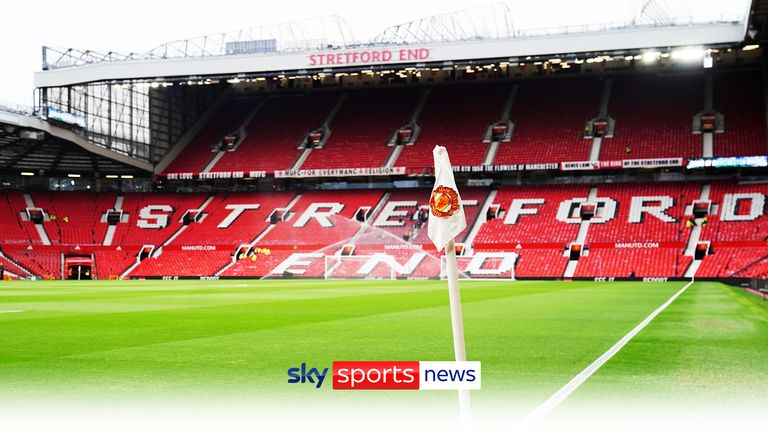U.S. Secretary of State Antony Blinken arrives at Incirlik Air Base near Adana, Turkey, February 19. CLODAGH KILCOYNE
US Secretary of State Antony Blinken on Saturday warned top Chinese diplomat Wang Yi of the consequences if China materially supports Russia’s invasion of Ukraine, saying in an interview after the two met Washington was concerned Beijing was considering arms sales to Moscow.
The two superpowers’ top diplomats met at an undisclosed location on the sidelines of a global security conference in Munich, just hours after Wang called Washington “hysterical” in an ongoing row over the US launching a suspected Chinese spy balloon.
Relations between the two countries have been strained since Washington said China flew a spy balloon over the continental US before American warplanes shot it down on orders from President Joe Biden. The row also came at a time when the West is closely watching Beijing’s response to the Ukraine war.
In an interview to be aired on NBC News’ “Meet the Press with Chuck Todd” Sunday morning, Blinken said the United States was very concerned that China was considering providing lethal support to Russia and that he had made it clear to Wang that “doing that would have serious consequences in our relationship.”
“There are several types of lethal aid that they are at least considering, including guns,” Blinken said, adding that Washington will release more details soon.
Wang told Blinken the United States must “face and repair the damage” that the bilateral ties “caused through the indiscriminate use of force,” China’s foreign ministry said Sunday.
Wang was referring to the recent launch of what the United States is calling a spy balloon, but Beijing said it was a weather surveillance vehicle.
In another statement, the Washington Department warned of a further escalation.
“If the US insists on exploiting the problem, escalating the hype and escalating the situation, China will see it through to the end and the US will suffer all the consequences,” it said.
In a briefing with reporters, a senior State Department official said China is trying to “have both,” claiming it wants to contribute to peace and stability while taking “worrying” steps to support Russia’s invasion of Ukraine.
Blinken “warned quite bluntly about the implications and consequences of China providing material assistance to Russia or helping Russia systematically circumvent sanctions,” the senior official said on condition of anonymity.
Russia and China signed a borderless partnership last February just before Russian forces invaded Ukraine, and their economic ties have boomed while Moscow’s ties to the West have shrunk.
The West has been wary of China’s response to the Ukraine war, with some warnings that a Russian victory would affect China’s approach to Taiwan. China has refrained from condemning the war or calling it an “invasion.”
Earlier, at a panel discussion at the conference, Wang reiterated a call for dialogue, suggesting that European countries “calmly think about” how to end the war.
He also said that there are “some forces that don’t seem to want the negotiations to succeed or the war to end soon,” without specifying who he was referring to.
NO APOLOGY
Blinken and Wang’s meeting came hours after China’s top diplomat slammed the United States, accusing it of “hysterical” behavior in violation of international norms by shooting down the balloon.
The balloon’s flight over US territory this month sparked an uproar in Washington and prompted Blinken to postpone a planned visit to Beijing. This Feb. 5-6 trip would have been the first by a US Secretary of State to China in five years and was seen by both sides as an opportunity to stabilize increasingly strained relations.
“Having sent an advanced fighter jet to shoot down a balloon with a missile, such behavior is unbelievable, almost hysterical,” Wang said.
“There are so many balloons around the world and in different countries. So is the United States going to shoot them all down?” he said.
China reacted angrily when the US military shot down the 60-meter balloon on February 4, saying it was intended to monitor weather conditions and went off course. Washington said it was clearly a surveillance balloon with a massive undercarriage housing electronics.
Questions had surfaced as to whether Blinken and Wang would use the Munich conference as an opportunity to meet again in person, and the State Department only confirmed the hour-long meeting after it ended.
In an interview with NBC, Blinken said Wang did not apologize for the balloon’s flight.
“I simply told him that this was unacceptable and could never happen again,” Blinken said, referring to the balloon’s violation of US airspace.
“There was no apology,” he said, adding that he had not spoken to Wang about postponing his trip to China.
Washington had hoped to bring ties, which had hit a dangerous low in August with China’s reaction to a visit to Taiwan by then-US House Speaker Nancy Pelosi, to “ground level.”
But Craig Singleton, a China expert at the Foundation for Defense of Democracies in Washington, said while Wang’s comments at the conference were likely aimed at averting embarrassment over the balloon incident, the lack of a strong response from Washington would “damage China’s appetite for risk.” increase future disputes.”
“Blinken and Wang’s meeting will not change the downward trend in US-China relations. It is clear that there is almost no trust between the two sides,” Singleton said.
Don’t miss interesting posts on Famousbio










